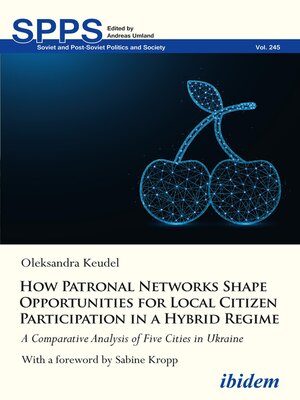How Patronal Networks Shape Opportunities for Local Citizen Participation in a Hybrid Regime
ebook ∣ A Comparative Analysis of Five Cities in Ukraine · Soviet and Post-Soviet Politics and Society
By Oleksandra Keudel

Sign up to save your library
With an OverDrive account, you can save your favorite libraries for at-a-glance information about availability. Find out more about OverDrive accounts.
Find this title in Libby, the library reading app by OverDrive.



Search for a digital library with this title
Title found at these libraries:
| Loading... |
Oleksandra Keudel proposes a novel explanation for why some local governments in hybrid regimes enable citizen participation while others restrict it. She argues that mechanisms for citizen participation are by-products of political dynamics of informal business-political (patronal) networks that seek domination over local governments. Against the backdrop of either competition or coordination between patronal networks in their localities, municipal leaders cherry-pick citizen participation mechanisms as a tactic to sustain their own access to resources and functions of local governments.
This argument is based on an in-depth comparative analysis of patronal network arrangements and the adoption of citizen participation mechanisms in five urban municipalities in Ukraine during 2015–2019: Chernivtsi, Kharkiv, Kropyvnytskyi, Lviv, and Odesa. Fifty-seven interviews with citizen participation experts, local politicians and officials, representatives of civil society and the media, as well as utilization of secondary analytical sources, official government data, and media reports provide a rich basis for an investigation of context-specific choices of municipal leaders that result in varying mechanisms for citizen participation.






